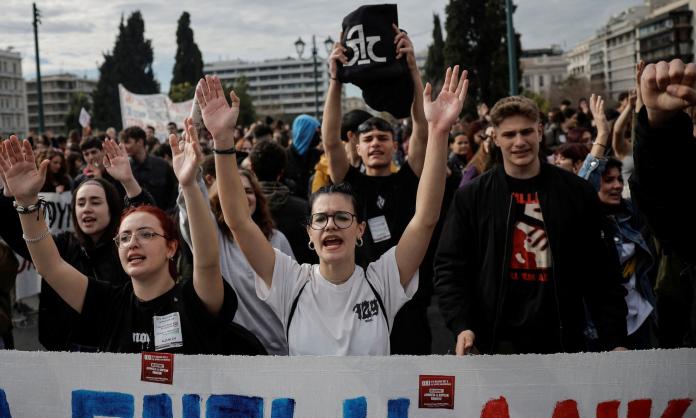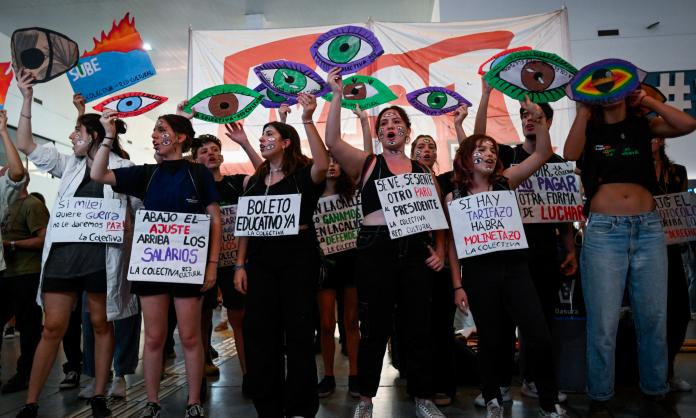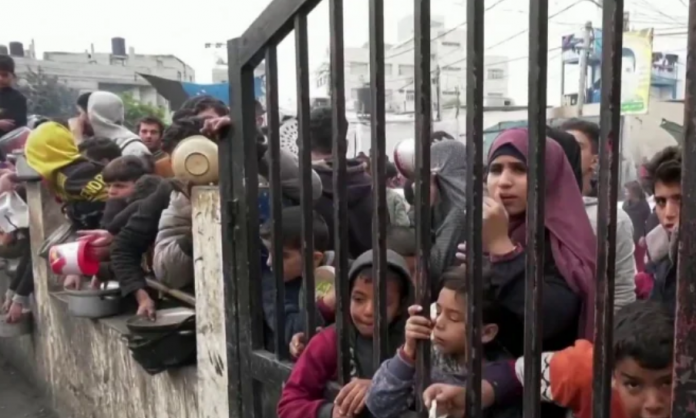Mass demonstrations have taken place across Greece in recent weeks, as students protest against a bill, tabled in the parliament in December by conservative Prime Minister Kyriakos Mitsotakis, which would introduce private universities into the country.
Article sixteen of the Greek constitution guarantees free education “exclusively provided by institutes that consist of public entities with full self-governance”.
Mitsotakis argues that the introduction of private universities would foster competition and force both public and private institutions to innovate and improve. The prime minister’s deputy, Pavlos Marinakis, also argues that Greece has “lagged behind too many years” when it comes to “modernising” education, according to reports in Kathimerini, an Athens-based daily newspaper.
Article sixteen has for decades protected public universities from privatisation, and also prevented the growth of a two-tier, public-private system, which would benefit only the children of wealthy families.
So students have responded to the proposed bill with protests and campus occupations. Students chanting “Not a step back!” and “Hands off our degrees!” are a sign that the government’s arguments have not cut through.
Mass student assemblies in most universities have voted for the struggle to move forward, with a notable example being the University of Macedonia, where an assembly of more than 800 students last week voted to extend the occupation of the university in a supermajority vote of 77 percent.
In an article published at left-wing news site Epohi, Foivos Zantes, Ioanna Mpoutza and Haris Halakatevakis, elected representatives of university unions, write: “Our demands must become everyday conversation in every workers’ union, in every organisation, in every cafe, because it affects all of us”.
The attempt to privatise education is not new. In 2004, the conservative government of Prime Minister Konstantinos Karamanlis, emboldened by a strong electoral victory, was set to carry out a wave of attacks against workers and students. One of those attacks was the rewriting of article sixteen.
In April 2006, Greek students found the courage to step onto the streets. The following month, fifteen university occupations took place following a mass rally. By June, there were 420 occupations covering practically all schools and universities. In September, university teachers joined in an indefinite strike against the attacks.
While the strike ended after six weeks, it helped turn the tide against the government. By December, it was clear that the bill proposing the constitutional amendment would not get the needed support in the parliament, something that could be attributed to the mass movement. The students defeated the bill through the power of organised mass struggle.
Today’s students remember the struggle of 2006 and are taking inspiration from it.
It is still early in the year, but students have already stopped the bill from being passed in January, contrary to the government’s wishes. Many student organisations are calling on the trade unions to act and prepare for a “blackout” if the bill is presented for a vote in parliament. The university workers’ union has responded by joining the student marches and giving speeches at the mass assemblies.
The students have learned that the only way to defeat the attacks they are facing is through mass struggle. It will be a long year, but they know they can win—they have done so before.









